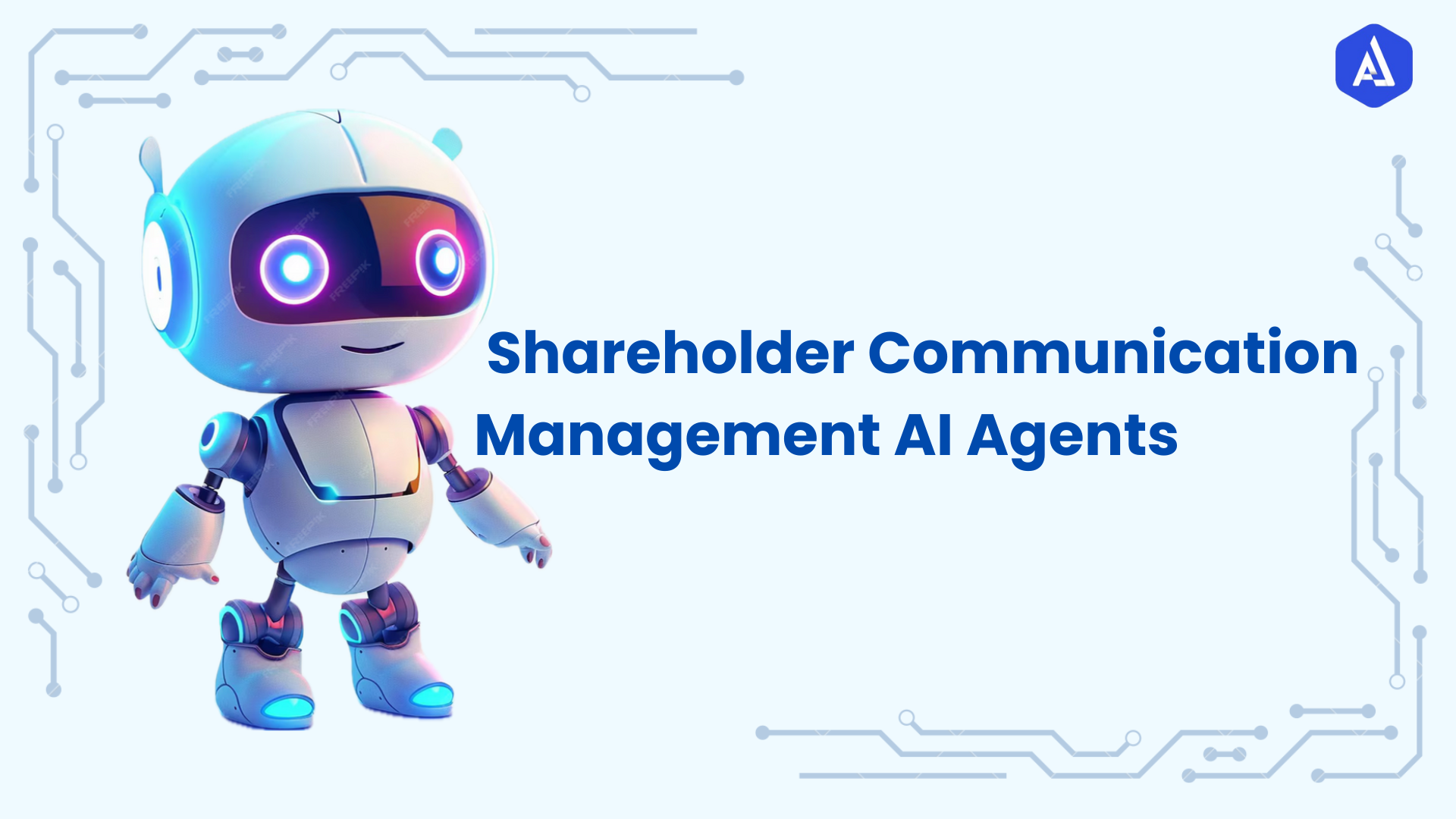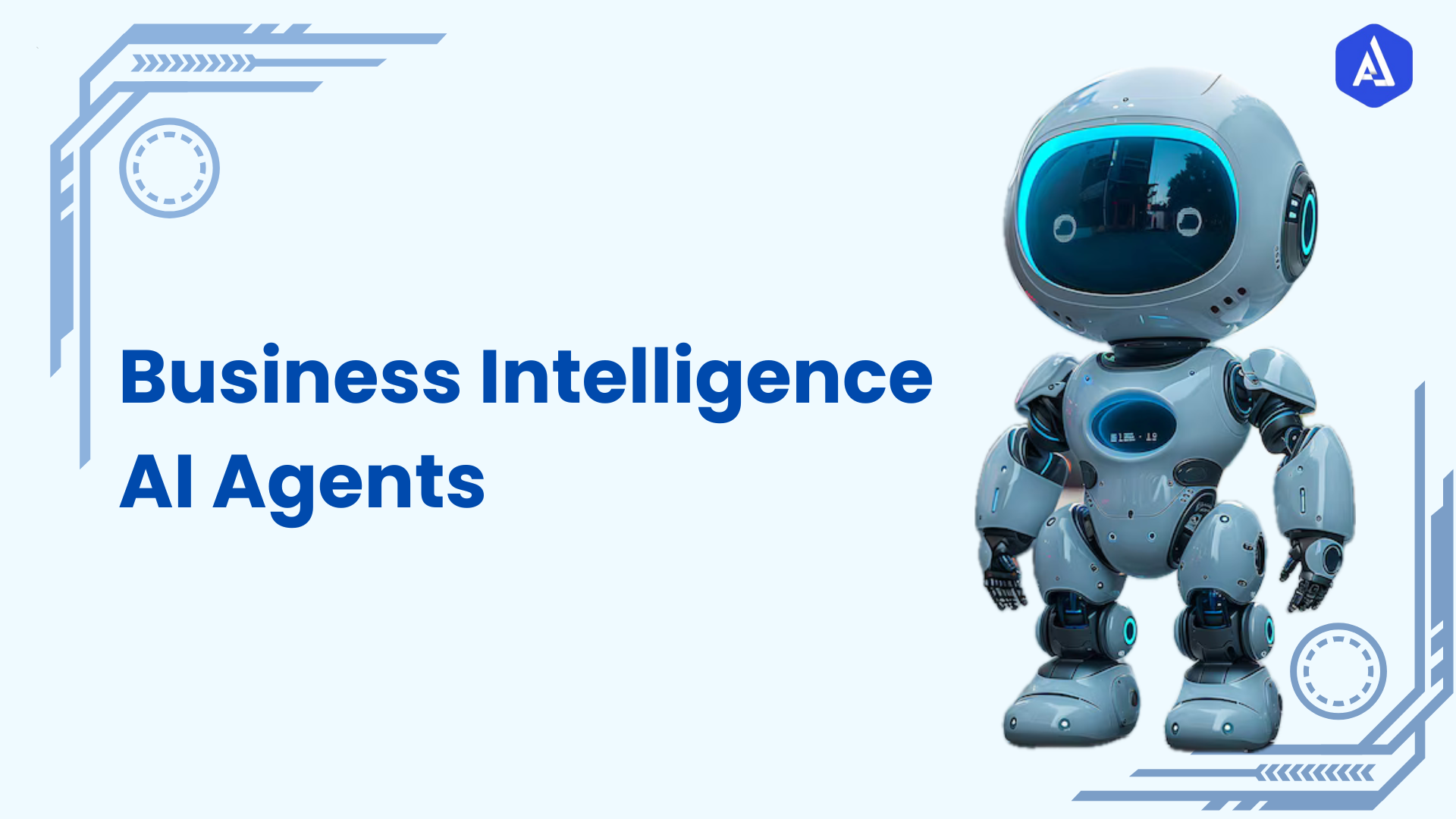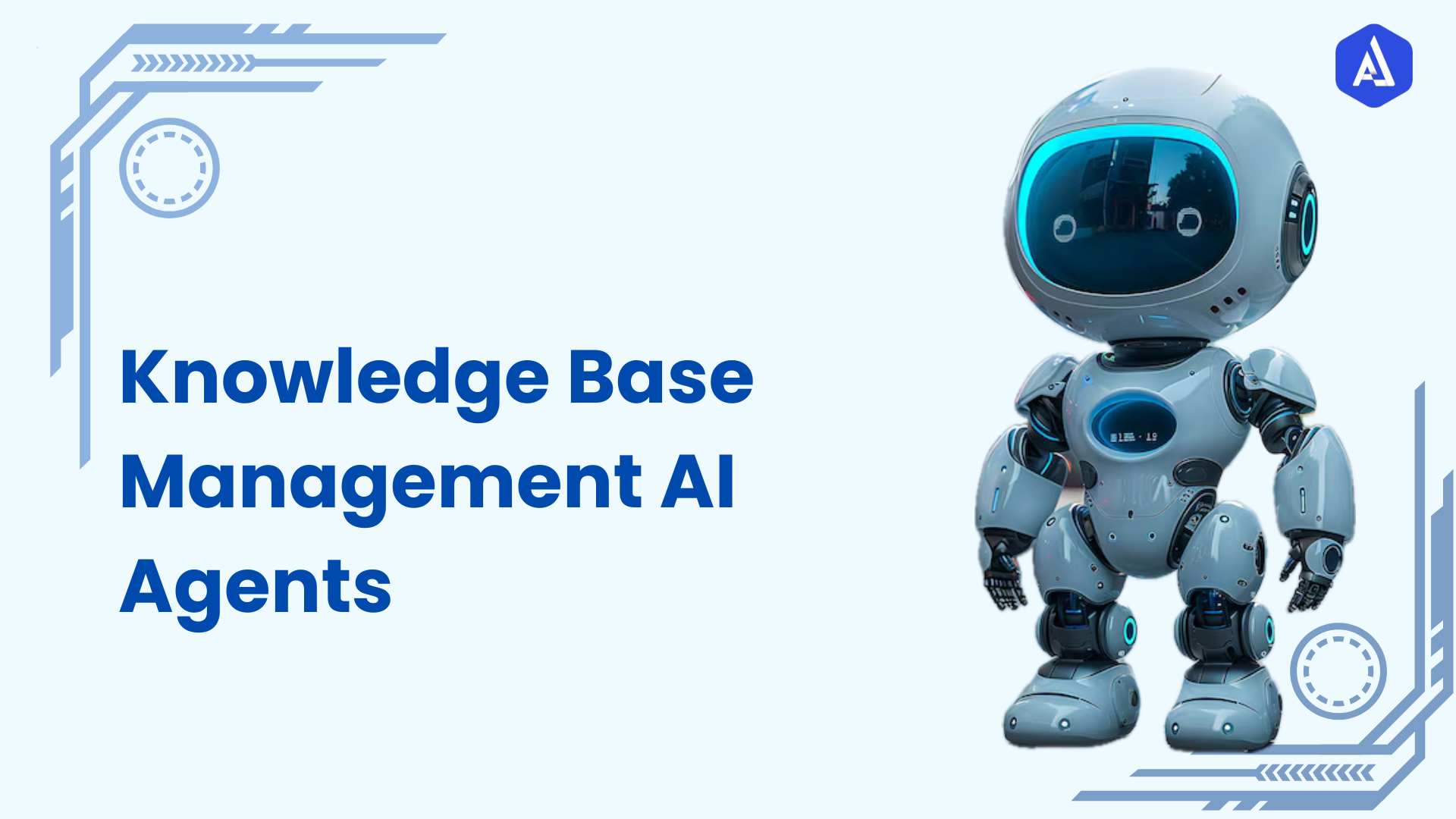Introduction
Invoice Processing Automation AI Agents are sophisticated computer-based systems that ease and simplify the processing of invoices within organizations. It gives a systematic simplification of data extraction, validation, and payment cycle without manual effort, reducing opportunities for errors and processing time. This brings business choices toward strategic financial decisions.
What is Invoice Processing Automation?
Invoice processing automation is handling the entire lifecycle of invoices by employing technology through AI agents, from reception to payment. This involves extracting data from invoices, verifying it against purchase orders, routing for approbation, and ensuring timely payments. By automating this cycle, it will enable an organization to be more efficient, cost-effective, and error-free.
About the Process
a. Existing Invoice Processing Steps
-
Invoice Receipt: The invoices come in different forms (paper-based, email, or electronic invoices) originating from different suppliers.
-
Data Entry: Inputting the numbers, dates, and values of invoices and the vendors' details manually on accounting software.
-
Data Validation: A check on the correctness of invoices by comparing them with the purchase orders or contracts issued.
-
Approval Workflow: There is always an approval system where invoices pass through before reaching the rightful payee, and this is what makes it slow and untidy.
-
Payment Processing: Invoices that pass through approval are paid and undergo further checks, mostly entered manually into financial systems.
-
Record Keeping: The invoices and their corresponding payments are kept for future use and particularly to deal with any compliance audit that may be conducted.
-
Reporting and Analytics: Creation of reports that will help to evaluate the novices of invoice processing and to reveal the problem areas
b. Synergy with AI Agents
-
Automated Data Capture: The AI Agents in Invoice Processing Automation are OCRs that read data of invoices and do not require any entry manually.
-
Real-Time Data Validation: IPA-AI Agents can check the extracted data with records in a moment, eliminating the possibility of mistakes and shortening the validation timeline.
-
Streamlined Approval Workflows: The Invoice processing automation by approval routing with the help of approval AI Agents also speeds up the process as it follows the rules pre-defined.
-
Seamless Payment Integration: Invoice Processing Automation AI Agents involve payment processing to financial systems immediately after approval of invoices is made by the AI system.
-
Enhanced Record Management: IPA-AI agents also ensure invoices and payments are well recorded digitally to ease cases of audits and compliance.
-
Advanced Reporting and Insights: IPA AI agents create actual time analysis and reports regarding the invoicing including awareness of trends and issues to consider.
Invoice Processing Automation AI Agents help organizations to complement the invoice processing systems and create a more effective, efficient, and accurate, operation out of the invoicing process.
About the Agent
Invoice processing automation AI agents are high-tech systems that improve the efficiency of invoicing. These agents use optical character recognition technology with machine learning capabilities to ensure accuracy in extracting data from invoices. They work with validation algorithms to make sure that the data will comply with existing records.
The AI agents, therefore, automate approval workflows by posting invoices based on set rules defined in the system and integrate very well with accounting software for a smooth data flow. With user-friendly interfaces and intuitive dashboards, Invoice Processing Automation AI Agents help organizations gain valuable insights into their invoicing processes while improving overall financial management.
Benefits of Invoice Processing Automation AI Agents
a. What Would Have Been Used Before AI Agents?
Before AI agents automated invoice processing, traditional manual processes were predominant in dealing with invoices for organizations. These include the usage of spreadsheets in data entry handling, paper-based approval workflows, and simple accounting software that needed human interference.
The problems associated with these traditional methods are that they were quite time-consuming, full of errors, and would eventually result in delayed payments and stressed relationships with vendors. The inability to maintain accurate records and the status of invoices was also one of the problems.
b. What Are the Benefits of AI Agents?
-
Improvement of Efficiency: Invoice Processing Automation AI Agents automate repetitive tasks such as data extraction and validation for faster completion of the process of invoice processing. It reduces the time and effort of finance teams on more strategic activity instead of getting bogged down on manual entry.
-
Cost Savings: By saving person-hours and reducing the possibility of errors that come with costs in terms of fines or overpayment, organizations can save millions in costs through Invoice Processing Automation AI Agents. Inefficiencies achieved also lead to lower costs of operation.
-
Improved Accuracy: Advanced data extraction and validation capabilities reduce manual errors in entering the data with Invoice Processing Automation AI Agents, thus resulting in more accurate financial records and adhering to internal policies.
-
Faster Payment Processing: Automated approval workflows allow routes and processes of invoices to happen faster. It is not only toward better cash flow management but also strengthens the partnership with vendors by making timely payments.
-
Data-Driven Insights: Invoice Processing Automation AI Agents give you rich analytics and reporting capabilities, so organizations can have more visibility into key performance metrics around invoice processing. It enhances decision-making based on knowledge and depth into areas for improvement.
Use Cases for Invoice Processing Automation AI Agents
The structure of IPA AI Agents makes them flexible and thus can be implemented in different settings of industries and organizations. Here are several scenarios that illustrate their adaptability and effectiveness:
-
E-Commerce Businesses: Due to competitiveness and dynamism in the e-business industry, organizations are presented with numerous invoices from various suppliers. Invoice Processing Automation AI Agents can identify all required data on these invoices, verify it with purchase orders, and transfer it for approval without the need for additional human interaction.
This accelerates payment, at once it increases the efficiency of the supplier, who in turn gets his or her money at a suitable time, hence the vital supplier/vendor relationship.
-
Healthcare Organizations: When managing invoices from different service providers, especially in healthcare, there are always some hard challenges caused by comprehending regulations.
Invoice Processing Automation AI Agents assist healthcare organizations by automating the reception and confirmation of invoices from suppliers and contractors within this sector. This also guarantees all the invoices meet set industry standards and no violation of regulations, hence avoiding the enlist of fines.
-
Financial Institutions: In general, invoices specifically related to services rendered, transactions, and various operational costs come under the realm of banks and various financial institutions.
IPA AI Agents can support these invoices so that they are streamlined for approval within the company and at the same time meet the requisite compliance procedures. This increases productivity as many financial dealings depend on computers and enables the creation of precise records.
-
Educational Institutions: School and college institutions receive many invoices from service providers for supplies, services, and maintenance. AI Agents can automate the invoice processing workflow by capturing invoice data and routing it through an automated approval system based on the unique workflows of educational institutions, relieving administrative burdens to free up time for more significant student-focused activities
Considerations
Organizations that adopt Invoice Processing Automation AI Agents should consider the following key technical and operational considerations before they can successfully deploy the solution:
-
System Integration: The current accounting software and ERP systems should have the ability to integrate all types of AI agents. This will ensure seamless data flow, with minimum disruption of the switch from manual processing to automation.
-
Data Security: Safeguard financially sensitive information with robust security measures, including encryption and access controls, to prevent breaches and unauthorized access to data.
-
User Training: Employee training should have a comprehensive training program, equipping the employee on the proper use of AI agents. This allows the realization of the optimum benefits and widespread uptakes by everyone across the organization.
-
Change Management: Establish a clear change management strategy to address potential resistance from employees. Communicating the benefits of automation and involving staff in the implementation process can ease transitions.
-
Performance Monitoring: Institutionalize continuous assessment and evaluation of the performance of the AI agent. Assessments will help identify improvement areas and adjust the agent to fit changing business needs over time
With these factors being taken into consideration, organizations can make sure the invoice processing automation AI agents fit well with their processes so that improved efficiency and effectiveness are enhanced within their invoicing processes.
Usability of Invoice Processing Automation AI Agents
To effectively utilize Invoice Processing Automation AI Agents, follow this concise guide for setup, operation, and troubleshooting:
-
Open the AI Agent: Launch the Invoice Processing Automation AI Agent from your application or platform.
-
Log In: Access the agent using your organization's authentication method to enter the system securely.
-
Integrate with Your ERP System: Follow the on-screen instructions to integrate the agent with your existing ERP system, ensuring seamless data flow.
-
Upload Invoices: Choose how invoices will be processed—upload files directly (PDFs, JPGs, etc.) or import them from email or cloud storage services like Google Drive or Dropbox.
-
Automated Data Extraction: The AI agent will automatically extract key information from invoices, such as vendor details, invoice numbers, and amounts due.
-
Review Extracted Data: Check the extracted data for accuracy and make any necessary adjustments to improve future performance.
-
Approval Workflow: Set up predefined approval rules within the agent to route invoices to the appropriate approvers automatically.
-
Monitor Real-Time Alerts: Stay informed about any discrepancies or issues flagged by the agent during processing through real-time alerts.
-
Generate Reports: Utilize reporting features to create summaries of processed invoices and compliance statuses for stakeholders.
-
Troubleshooting Tips: If you encounter any issues, consult the FAQs or troubleshooting guides provided within the agent interface for quick resolutions
Talk about the Future
Future Analysis: Advances in technology will help in significant changes in Invoice Processing Automation AI Agents, which will enhance their capabilities to tackle emerging business challenges. Some of the possible future developments are listed as follows:
-
Advanced Machine Learning: The automation of future invoice processing AI agents will rely more on more advanced versions of machine learning algorithms for their purposes of learning to understand the patterns of historical data, thus enhancement in extraction and validation processes over time leading to high accuracy.
-
IoT and Blockchain Integration: Adding IoT and blockchain will enhance the Invoice Processing Automation of AI Agents. Where IoT delivers information on real-time transactions, blockchain will ensure integrity and traceability on the invoices themselves, thus increasing trust in the invoice process.
-
Predictive Analytics with Financial Insights: Future Invoice Processing Automation AI Agents will be equipped with predictive analytics tools, so organizations can proactively anticipate cash flow trends and detect possible financial risks before they occur, thus enabling early decision-making. However, to benefit the users, organizations would work on enhancing the user experience with NLP.
-
Focus on Ethical AI Practices: As data privacy and algorithmic bias continue to gain momentum and rise to more prominence on the front burner in the future, Invoice Processing Automation AI Agents will pay a lot of attention to ethical AI practices, emphasizing transparency and accountability in their operations as a means of ensuring trust from the users.
These advancements will allow organizations to navigate the complexities of invoice processing better, hence making compliance a strategic play as well while improving efficiency and innovation in financial management.


